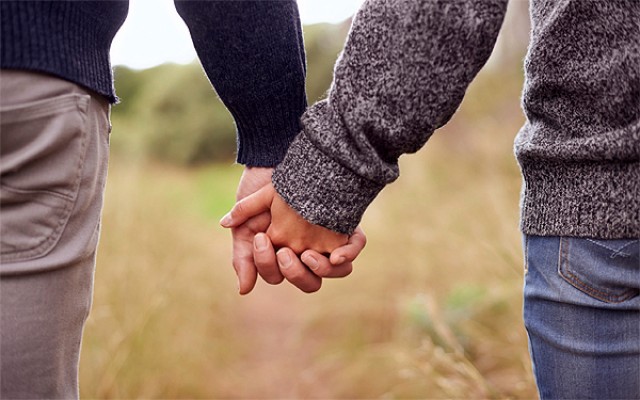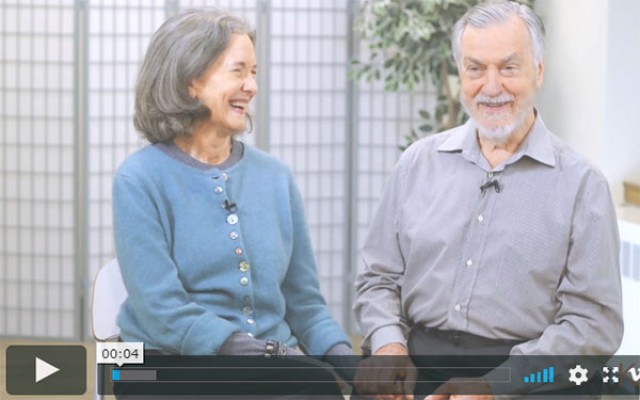How to Be Empowered in a Relationship: Wisdom from Our Presenters

If love is all about union—finding your soulmate, your other half—then how do we maintain our individuality and autonomy within that merging? It’s a tough question, but an all-important one, because unions don’t tend to work very well unless the people who belong to them can also stand in their own power. We asked our presenters who teach relationships programs at Kripalu to share their thoughts on how to be empowered in a relationship with a significant other. Here’s their wisdom.
Peter Bregman and Jessica Gelson Be willing to show up fully with all of yourself. If you start holding back, then your relationship might be “safe,” but holding back can also kill passion, creativity, honest connection, and spontaneity. If you want these in your relationship, cultivate the courage to feel everything, even the difficult answers, while holding yourself and your partner with a non-shaming heart. Every day, you have to choose to stay connected—with yourself and with your partner.
Jessica Relationships, like yoga, are a practice. Some days are much harder than others. I feel most empowered in my relationship when I’m able to see that we are both showing up all the way, even with all of our flaws and shortcomings, and trying our best. This allows me to have mercy—for myself and my partner. When we encounter conflict, we use it as a way to learn more about ourselves. It is an opportunity take personal responsibility and to grow together. When we are able to share vulnerably, we are rewarded with deeper and deeper intimacy.
Peter In all of my relationships, I have to remember that I don’t know. There are multiple perspectives in every relationship. I have my experience of the world, of the relationship, and my partner has theirs. I approach my partner, and any conflict that may arise, with curiosity and openness. It makes it easier for me to show up in my vulnerability. And it makes it easier for me to listen to, take in, and feel my partner. And this, in turn, creates even greater intimacy.
Jayson Gaddis Identify and own your needs. One need that is required for a secure adult partnership is the need for emotional safety. If you can't do this, you're setting yourself up for trying to change the other person in order to feel safe. Better to vet out if your partner can hold you in this way. But it's up to you to own this need and advocate for it.
Charlie and Linda Bloom Empowerment is a term that has, in recent years, entered our national lexicon and gone from the fringes of jargon to the mainstream of language. Yet many of us are ill-informed regarding the actual meaning of this word and how it can be cultivated and strengthened, particularly in the context of committed partnerships. Empowerment isn’t something that happens to us or something we can do to or for another. Empowerment has to do with the process of becoming stronger and more confident, especially in controlling one’s life and claiming one’s rights.
More than any other aspect of life, relationships not only challenge us to claim our power, but to do so in a way that promotes the feeling of safety, trust, and respect on the parts of both partners. Relationships provide the context and the arena for the ultimate win-win game, because unless both partners feel satisfied with the outcome of an interaction, the relationship will be diminished and consequently each partner will suffer, even if, in the short run, one of them will appear to “win.” Relationships are the context within which we learn how to balance interpersonal support with personal responsibility.
Richard Borofsky and Antra Kalnins Borofsky The most empowering advice we can offer: Know that you came here on this earth to learn love. In this life, the mix of intense vulnerability (fear, loss, pain, impermanence, imperfection …) and boundless love makes this a very advanced (post-graduate level) love school. See your relationship as love’s classroom. See yourselves as love’s apprentices:
From love we learn to ease
our fretful longing for more
and to rest in the blessedness
of things as they are.
From love we learn to heal our losses
and our fears of loss.
Love awakens us.
It shows us the truth about ourselves and
gives us the courage to live this truth.
Love sustains us. It is our quintessential
nourishment.
And love connects us—
To others, to ourselves,
And to the source of all being.
Love is our teacher
and we are love’s apprentices.
Stan Tatkin and Tracey Boldemann-Tatkin The most important thing to remember is that no interdependent relationship can last or be happy when unfairness, injustice, or insensitivity reign. Where unfairness and injustice prevail, there can be no such thing as shared power, cooperation or collaboration, trust, respect, or safety. In couple’s attachment, that is called insecure functioning.
It’s equally important to remember that, in couples, it takes two people to enable an insecure functioning relationship. Where there is one, there’s the other. If an insecure partnership sounds good to you, that’s okay with me. However, if it sounds terrible, this is what you’re going to do.
Get with your partner and go face to face. Decide to be secure functioning from this day forward by honestly answering the following questions and work through where you agree or disagree.
- Do we believe that putting our relationship first, above all other matters, is the best way to care for everyone else?
- Do we believe in absolute shared power—two bosses—that must make decisions together or not at all?
- If we enjoyed shared power and authority, should we not also create guard rails that protect us from each other and everyone else?
- Do we believe that we should base our relationship on principles of fairness, justice, and sensitivity?
- Do we believe we should always protect each other in public and private?
- Do we believe that we both must be good stewards and absolute guarantors of each other’s sense of safety and security?


